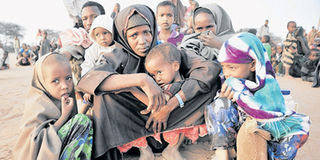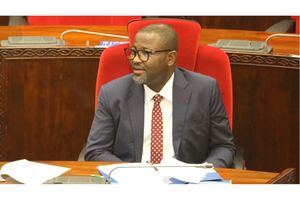Refugees are not political resources and this is why

What you need to know:
- In a provocative article in The Guardian on Sunday, Professor Alexander Betts (director of the Refugee Studies Centre at Oxford University) argued that a view of refugees as potential economic contributors to their receiving societies must be complemented by a more radical “rethinking of the role of refugees in society”, one that sees refugees as political resources for reshaping regimes in their countries of origin.
Academics and policymakers alike have begun to push back, in earnest, against popular conceptions of refugees as a burden on their receiving societies. While these conceptions certainly ought to be challenged, we must be careful not to overlook refugees’ voices – and our own obligations – in the process.
In a provocative article in The Guardian on Sunday, Professor Alexander Betts (director of the Refugee Studies Centre at Oxford University) argued that a view of refugees as potential economic contributors to their receiving societies must be complemented by a more radical “rethinking of the role of refugees in society”, one that sees refugees as political resources for reshaping regimes in their countries of origin. Within a day, the article was shared on Facebook by Melissa Fleming, official spokesperson for the UN’s High Commissioner for Refugees, with the caption “refugees don’t just have economic potential – they are a political resource too”.
Betts makes a persuasive case. Recent research, he points out, focuses on the economic benefits of resettling refugees in European states while neglecting the political benefits of using them to support “long-term transitions to peace and democracy back home”. Fostering diaspora networks and providing political resources may not only prove a more successful but also a less expensive means of encouraging democratic transitions in “troubled countries” than current efforts to effect change through aid or intervention. Western democratic governments that refuse to acknowledge this potential, so the argument continues, will forgo the opportunity to fulfill their liberal foreign policy commitments while meeting refugees’ immediate material concerns, including legal status and temporary resettlement. This proposal, though elegant, has several blind spots. It neglects, for example, the refugees who would prefer not to be associated with the political situation in their home countries, let alone be expected to return and change them. Many seek to distance themselves from recent trauma, while others deliberately adopt new identities (some even rejecting the label of “refugee” altogether) in order to start new lives and find new communities. It also neglects the refugees whose social networks and personal resources are less easily mobilised for political change in their home countries – those whose families are at risk of severe repercussions, for example, or those who are already marginalised in their societies of origin. Treating refugees as “useful” for political change implicitly devalues those who lack either the desire or the means to aid the rebuilding process.
But there are deeper problems at the root of this argument. Attempts to reconcile refugees to host states’ agendas represent an erosion of the basis of the refugee protection regime: the understanding that states have obligations towards refugees, and ought to reconcile their own agendas to fulfilling them. Specifically, states’ policies should recognise that refugees are in need of protection precisely because their individual freedoms – including the freedom to determine their own political actions – have been overridden by their home nations, leaving them, in the words of the 1951 Refugee Convention, “unable [...] or unwilling to avail themselves of the protections of [those] countries”. The primary duty of a receiving state is thus to restore the refugee’s personal agency: something that is easily occluded by re-framing the refugee, instead, to suit its foreign policy goals.
Sadly, these are not hypothetical criticisms. Refugees have, historically, borne the costs of being treated as political resources by their hosts or powerful neighbours.
Rebecca Buxton is a student at Oxford University, reading for an MSc in Refugee and Forced Migration Studies




